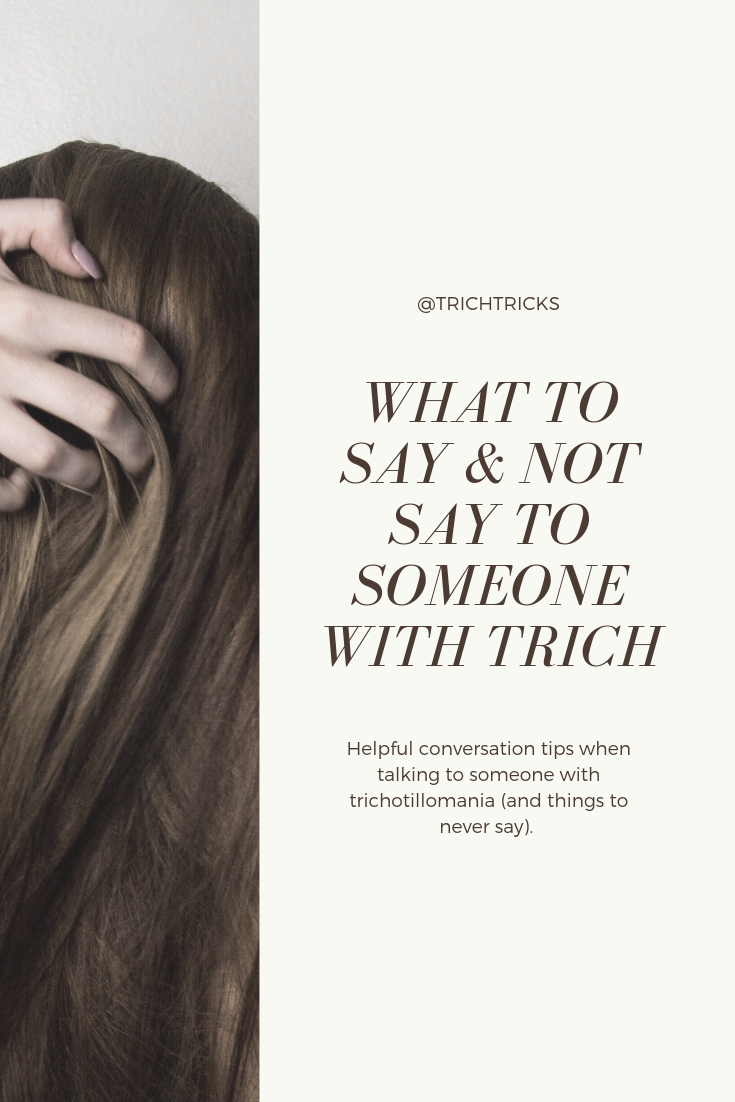Telling Others About Your Trichotillomania
It can feel scary to tell others about your trichotillomania. But it may help.
Here’s what my husband had to say about my hair pulling:
“The hardest part about loving someone with trichotillomania is feeling helpless. There’s so much I wish I could do for her when she’s struggling after a hair pulling episode. I wish I could take away her feelings of shame and worthlessness.
I wish I could strike a deal with God, trading all the hairs on my body so that she wouldn’t feel the need to pull hers. But I do what I can for her, because I love her, and this is my advice to anyone who loves someone struggling with trichotillomania:
Remind him or her that it’s not their fault. We all face obstacles and endure hardships. We’re all in this together. Love them for battling this disorder. Love them for being a fighter. They are strong, not weak, and they face this obstacle everyday. There are no breaks. No timeouts. We should commend them for their resiliency.
When i see a bald patch in Jen’s eyebrow or lashes, I’m not bearing witness to some evil that’s gotten the best of her. No, I’m reminded that we ALL struggle. I see evidence that she’s human, and that she’s lovely, and that we all need to stand united in our difficulties. She’s beautiful, she’s smart, she’s a wonderful wife and mother. She is not Trichotillomania. That is a PART of her, not what defines her, and i love the whole package.
Be kind to those who have trichotillomania. Love ALL of them, because they love all of you.”
Tips on how to tell others below.
Me, and my husband Bentz Deyo.
Some ways to tell people about your hair pulling disorder.
Decide who is trustworthy. You don’t need to tell everyone you know, but having a confidant can help free you from the hiding and shame.
Start by telling them you trust them immensely (this will set the conversation up with a positive vibe by complimenting them and making them feel specially chosen).
Explain trich in simple terms and have some resources printed or accessible if the person doesn’t understand. (https://www.bfrb.org/ has tons of resources)
Explain that you need a listener, not an advice giver. While most people want to jump in with their “magic fixes”, I’m sure you’ve probably tried everything (or at least it feels that way). Getting advice from people who don’t suffer with trich can be just plain annoying. So, make that clear up front: managing your trich is something you’re working on privately. (unless you want advice, that is!)
Be clear how they can help (or not help). If you’re wanting the person to watch for when you’re pulling your hair, give them permission to let you know and HOW. For instance, talk through how you’d feel comfortable if it happens in a public place vs. at home. Like gently holding your hand at home but in public, saying a code word that means, “Hey, you’re doing it”. OR let them know you DON’T want them pointing it out. Be clear.
Thank them for listening and not judging you. This is another “set-up” that will endear the person you’re speaking to and will put them in a mindset that is receptive and non-judgmental.
Keep talking about it. Tell the person how simply talking about it helped and ask if they’re okay talking about it another time.







